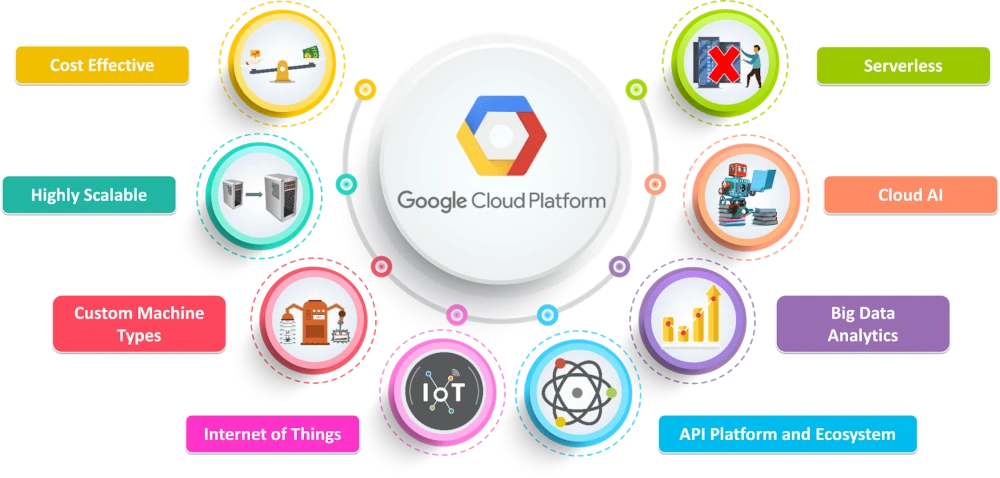Cloud platforms are the building blocks of modern business infrastructure as we head into 2025. If you’re running a startup or managing the IT for a large multinational corporation, cloud computing now encompasses much more than mere storage- it speaks of agility, automation, and innovation. Fair competition among various players in the cloud business makes the task of choosing the right cloud partner all the more strategic, especially when selecting services for tasks like list crawling, automation, or data integration.
Thus, these are the ten cloud platforms at the lead in the business landscape this year.

Top Cloud Platforms for Businesses
1. Amazon Web Services (AWS) – Still the King of the Cloud
AWS continues to dominate the cloud world, and it’s easy to see why. It offers an insane number of services, from machine learning to serverless computing, and has the global infrastructure to support pretty much any business at any scale.
- Why choose it: It’s battle-tested, highly scalable, and has a service for nearly every use case.
- Best fit for: Enterprises, tech startups, and companies needing custom infrastructure.
AWS is the safe bet when you don’t want limitations. Just be ready to navigate a complex pricing model.
2. Microsoft Azure – Best for Microsoft-Centric Workflows
If your business is already tied into Microsoft’s ecosystem, Azure is probably the most natural fit. It integrates tightly with tools like Office 365, Teams, and Windows Server.
- Why choose it: Hybrid cloud support and a seamless experience with other Microsoft tools.
- Best fit for: Mid to large enterprises and any business using the Microsoft software stack.
In 2025, Azure also leans heavily into AI services, thanks to its close partnership with OpenAI.
3. Google Cloud Platform (GCP) – Data and AI at Its Core

Google Cloud is not trying to be everything to everyone; it excels at a few things- AI, data analytics, and app modernization.
- Why choose it: BigQuery and Vertex AI are tools worth changing the business when data is everything to you.
- Best fit for: SaaS companies, AI startups, and data-driven organizations.
Google tools are powerful, but because they are so new for the team’s ecosystem, it could take some time to learn.
4. IBM Cloud – Reliable for Compliance-Heavy Industries
IBM Cloud might not be the flashiest name in the cloud race, but it holds its ground in industries where regulation and legacy infrastructure matter most.
- Why choose it: Known for security, governance, and hybrid cloud compatibility.
- Best fit for: Banks, healthcare providers, and companies with legacy systems.
It’s not the go-to for every business, but where it fits, it really fits.
5. Oracle Cloud Infrastructure (OCI) – Strong Performance, Competitive Pricing
Oracle has stepped up its cloud game in recent years. With improved performance and pricing, OCI is gaining traction, especially among businesses already using Oracle databases.
- Why choose it: High-performance computing and strong enterprise database support.
- Best fit for: Companies already in the Oracle ecosystem.
Don’t sleep on OCI, it’s become a serious alternative to AWS and Azure in certain use cases.
6. Alibaba Cloud – A Global Player with Asian Roots
Alibaba Cloud is massive in Asia and making moves globally. It’s a particularly smart choice for companies expanding into APAC markets.
- Why choose it: Excellent IaaS and strong presence in Asia.
- Best fit for: E-commerce businesses and companies with international growth plans.
It may not be as familiar to Western businesses, but it’s well worth a look if you’re going global.
7. Salesforce Cloud – Beyond CRM
Yes, Salesforce is a CRM giant, but it’s also a legit cloud platform for building business apps, automating workflows, and managing customer experiences.
- Why choose it: A powerhouse for sales and service teams.
- Best fit for: Customer-facing teams, especially in marketing and support.
It’s not your traditional cloud provider, but it fills a vital role in digital transformation, particularly for teams using off the shelf software to streamline operations.
8. DigitalOcean – Cloud Made Simple
DigitalOcean is all about simplicity. It doesn’t try to compete with AWS or GCP, depth-wise; it simply does the basics well.
- Why you want it: Simple UI, developer-friendly, and affordable pricing.
- Best for: Start-ups, small businesses, and independent developers.
Perfect if you just want to deploy apps without dealing with cloud headaches.
9. VMware Cloud – The Bridge to Cloud
The VMware product suite allows businesses with on-premise infrastructure to easily migrate to the cloud without the need to begin anew.
- Why choose it: Familiar tools and smooth migration paths for legacy systems.
- Best fit for: Large enterprises modernizing traditional environments.
It’s not trendy, but it’s practical, and that’s what a lot of companies need.
10. SAP BTP – Tailored for SAP-Heavy Workloads
SAP Business Technology Platform is laser-focused on businesses running SAP systems. It helps you connect your ERP data with cloud-native tools and services.
- Why choose it: Seamless SAP integration and strong real-time data processing.
- Best fit for: Enterprises already invested in SAP software.
If you’re deep in SAP, BTP is probably your best route to the cloud.
How to Choose the Right Cloud Platform
It’s not just about picking the biggest name anymore. Think about:
- Your team’s technical expertise
- The software you’re already using
- How fast do you plan to scale
- What kind of support or compliance do you need
In 2025, a multicloud approach is the most intelligent choice for many organizations: using several providers to fit with capabilities that are distinctive within each.
FAQs
Which is the best cloud platform in 2025?
It depends. AWS is the most mature, Azure is great for Microsoft users, and GCP is a leader in AI and data. The best one is the one that fits your business needs.
What is the most affordable cloud for small businesses?
DigitalOcean and Oracle Cloud tend to offer the best pricing for startups and smaller companies.
Is multicloud a good idea?
Yes, more businesses are going to use multicloud to reduce vendor lock-in and optimize workloads across platforms.
Which cloud provider is best for AI?
Google Cloud leads here, but AWS and Azure also offer powerful AI tools. It comes down to your team’s familiarity and project needs.
Can I switch between cloud providers easily?
It’s possible, but not always simple. Some platforms make it easier than others. That’s why starting with a flexible, container-based setup (like Kubernetes) is a smart move.
Final Thoughts
There’s no single “best” cloud provider for every business. The real win in 2025 is finding a cloud platform (or mix of platforms) that works for your goals, your budget, and your growth plan. Whether you’re building AI-powered apps or just need a solid place to host your backend, there’s a perfect cloud solution out there for you.
